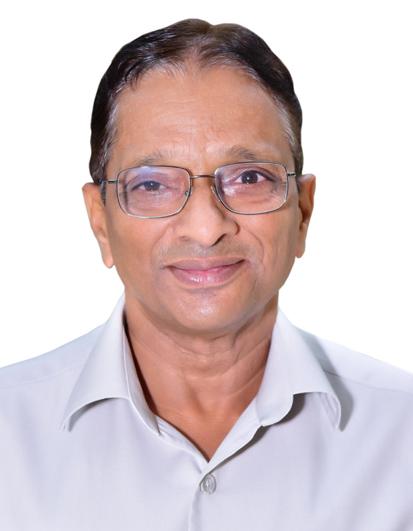Worker education is crucial for empowering workers in India’s organised, unorganised and rural sectors.
Accordingly, the Government of India has paved the way for creative initiatives in recent years, firmly establishing a commitment to developing a competent and empowered workforce.
Since its inception in 1958, India’s Workers Education Scheme has played an important part in its development. It strives to build and increase awareness and educate the workforce to effectively participate in India’s socio-economic development.
The government places a high value on improving skills, encouraging digital literacy, and stimulating technical growth, as seen by projects such as Skill India and Digital India and schemes such as PM-SYM and several other worker-friendly initiatives.
The Vishwakarma Yojana is the most recent addition to these efforts, demonstrating the government’s ongoing commitment to making progress through well-thought-out strategic initiatives.
The government is committed to educating workers about their rights and increasing their employability by tackling the skills gap.
Dattopant Thengadi National Board for Workers Education and Development (DTNBWED)
Previously known as the Central Board for Workers Education, DTNBWED is an autonomous organisation under the Ministry of Labour and Employment of the Government of India. The Workers Education Scheme has generated an enlightened and disciplined workforce and brought about desirable behavioural changes in workers in the organised, unorganised, and rural sectors. The Ministry of Labour and Employment provides grants-in-aid to support its operations.
The Workers Education Scheme intends to achieve the objectives of generating and raising awareness, as well as educating the workforce to ensure effective involvement in the country’s socioeconomic growth.
DTNBWED creates and delivers comprehensive training courses that extend beyond technical topics. These courses, which include behavioural skills, advocacy of government schemes, healthy industrial relations, education about labour laws, strengthening trade union and management relations, and occupational safety and health, were designed not only to improve soft skills but also to raise worker awareness of labour rights and cultivate a culture of compliance.
This holistic approach to training recognises the complex character of the workforce’s concerns.
The organisation was named after Shri Dattopant Thengadi, a towering figure in India’s labour movement.
Paradigm Shift
DTNBWED closely monitors the shifting dynamics of the World of Work and technological innovation, notably growing gig and platform economies. There is an interwoven web between the world of work and technology.
While the world of work may present countless chances, people must have technological skills to take these opportunities properly. Hence, keeping these changes in mind, the board has adjusted its training curriculum to match better the shifting definitions of people, workplaces and technology integration.
Notably, significant improvements happened following the adoption of the plan by DTNBWED, which included digital literacy, skill development, improved training approaches, collaborations, and a variety of other efforts. Following this road map, the Board has expanded its scope beyond traditional soft skills training and scheme advocacy to include registering workers in government schemes and educating them about online and offline employment channels.
Therefore, the emphasis is on making employees self-sufficient, increasing their competence, competitiveness, and relevance in an ever-changing work environment.
Strategic Collaborations
As a tripartite body, DTNBWED exhibits the involvement of numerous stakeholders from society’s eco-system, such as relevant educational and training organisations, ministries, NGOs, international bodies and so on.
In addition, the board has expanded its horizons and reached out to the masses by signing various Memorandums of Understanding.
It continues to collaborate with organisations to address skill gaps, producing courses with worldwide scenarios in mind that affect India’s landscape. This strategic step indicates the board’s commitment to keeping up with the changing needs of the workforce and the shifting dynamics of the labour market.
Moreover, the Board is taking a proactive approach, focusing on education and skill development to have a socioeconomic effect through an empowered and skilled workforce. Workers who leave and return to society become agents of constructive change, contributing to the nation’s growth.
The journey of DTNBWED demonstrates the transforming impact that proper education and training have in changing individuals, providing value to nation-building, and increasing organisational productivity.
The Board as the Central Point in Workers’ Education
The DTNBWED has justifiably earned its position as the focal point of workers’ education by putting workers at the centre of its efforts. As the labour market and workforce adapt, so does DTNBWED, ensuring it remains at the forefront of empowering the nation’s backbone—the hardworking citizens.
About Virjesh Upadhyay, Chairman DTNBWED
A dedicated leader, Virjesh Upadhyay has more than 30 years of diverse experience as a labour activist and trade union leader. While working in the labour field, he spearheaded several programmes to educate workers nationwide.
He is closely involved in India’s policy-making processes related to jobs, livelihoods and development.
He has also served on several high-level committees and task groups established by the national and state governments.
Since 2020, he has also been the Director General of the Dattopant Thengadi Foundation.
He was previously the All-India General Secretary of the Bharatiya Mazdoor Sangh, collaborating closely with the Indian government in various forums and advocating for labour reform in the country.
Currently, he is working on several labour reform projects with ILO and VV Giri National Labour Institute.
Other Achievements
Virjesh Upadhyay represented Indian trade unions at the ILO’s 101st, 105th, 107th, and 108th International Labour Conferences held in Geneva, Switzerland.
Furthermore, he fought single-handedly from the ground level to the Supreme Court for the regularisation and “Equal pay for Equal Work” of 3,00,000 casual workers with the Personal &Training department, the Central Government coordinating agency in personnel matters.
Virjesh Upadhyay is a well-known thought leader in social economy and labour, lecturing on various economic and labour issues at VVGNLI, NILERD, and other international groups.































